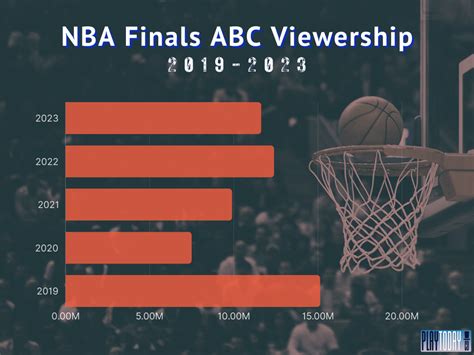
Brittney Griner’s recent comments regarding Caitlin Clark and the WNBA have ignited a firestorm of controversy, particularly among conservative commentators, sparking a debate over whether Griner’s remarks constitute legitimate critique or unfair disparagement.
Phoenix Mercury center Brittney Griner has found herself at the center of a heated debate following recent comments interpreted by some as critical of Indiana Fever rookie Caitlin Clark. While the specific content of Griner’s comments isn’t explicitly detailed in early reports, the reaction, particularly from conservative voices, suggests a perception that Griner’s remarks were dismissive of Clark’s impact or achievements. The controversy highlights existing tensions surrounding race, gender, and perceived preferential treatment within the WNBA, with some accusing Clark of benefiting from “white privilege” while others defend her accomplishments as earned through skill and hard work. The ensuing discussion raises questions about fair play, media bias, and the complexities of navigating identity politics in professional sports.
The uproar appears to stem from the confluence of several factors. First, Caitlin Clark’s meteoric rise has brought unprecedented attention and revenue to the WNBA. Her transition from college phenom to professional player has been accompanied by a massive influx of new fans, media coverage, and lucrative endorsement deals. This increased visibility has inevitably led to comparisons with established WNBA stars, including Brittney Griner, who has been a dominant force in the league for over a decade.
Second, the issue of race and privilege is deeply embedded in the conversation. Critics argue that Clark’s race has played a significant role in her rapid ascent to stardom, suggesting that Black players have historically faced greater obstacles in gaining recognition and endorsement opportunities. Conversely, Clark’s supporters contend that her success is solely attributable to her exceptional talent and work ethic, dismissing any claims of racial bias as unfounded.
Third, the political polarization of American society has further amplified the controversy. Conservative commentators, often quick to denounce perceived instances of “wokeness” or identity politics, have seized upon Griner’s comments as evidence of a broader cultural agenda aimed at undermining meritocracy and promoting divisive narratives. This has led to a barrage of criticism directed at Griner, with some accusing her of jealousy, resentment, and even racism.
The controversy underscores the challenges of navigating complex issues of race, gender, and privilege in the public sphere. While legitimate criticism and debate are essential for progress, the vitriolic nature of the online discourse often obscures nuanced perspectives and perpetuates harmful stereotypes. Ultimately, the Griner-Clark controversy serves as a reminder of the importance of fostering respectful dialogue and promoting a more equitable and inclusive environment for all athletes.
Further complicating the situation is the context of Griner’s own experiences. She was detained in Russia on drug charges and imprisoned for nearly 10 months before being released in a prisoner exchange. This ordeal garnered international attention and placed her at the center of a political maelstrom. Some argue that Griner’s perspective is informed by her unique experiences and that her comments should be interpreted within that framework. Others contend that her past does not excuse any perceived unfairness or criticism directed at Clark.
The controversy has also highlighted the broader issue of pay disparity in women’s basketball. While Clark’s endorsement deals have generated significant attention, WNBA players, in general, earn far less than their male counterparts in the NBA. This disparity has long been a source of frustration and contention within the WNBA, and the Griner-Clark controversy has served as a reminder of the ongoing struggle for equal pay and recognition.
Moreover, the incident has exposed the delicate balance between celebrating individual achievements and promoting collective progress. While Clark’s success is undoubtedly a positive development for the WNBA, some fear that her disproportionate attention may overshadow the accomplishments of other talented players, particularly Black players who have historically been underrepresented in mainstream media. The challenge lies in finding ways to celebrate Clark’s contributions while also ensuring that all WNBA players receive the recognition and support they deserve.
The Griner-Clark situation also touches upon the dynamics within the WNBA itself. The league is known for its competitive environment, and rivalries between teams and players are common. Some observers suggest that Griner’s comments may be rooted in this competitive spirit, reflecting a desire to assert her dominance and challenge Clark’s status as the new face of the WNBA. However, others argue that such interpretations are overly simplistic and fail to account for the complex social and political factors at play.
The media’s role in shaping the narrative surrounding the Griner-Clark controversy cannot be overlooked. Some critics accuse the media of sensationalizing the issue and exacerbating tensions by focusing on conflict and controversy rather than promoting constructive dialogue. Others defend the media’s coverage as a necessary examination of important social and political issues. Regardless of one’s perspective, it is clear that the media plays a significant role in shaping public perceptions and influencing the course of the debate.
Ultimately, the Griner-Clark controversy is a multifaceted issue with no easy answers. It raises important questions about race, gender, privilege, and the role of sports in society. While the debate may be contentious and divisive, it also presents an opportunity for greater understanding and progress. By engaging in respectful dialogue, challenging our own biases, and working towards a more equitable and inclusive environment, we can ensure that the WNBA continues to thrive and that all athletes have the opportunity to succeed.
Expanding on the Key Aspects:
-
The Role of Race and Privilege: The debate surrounding Caitlin Clark frequently intersects with discussions about race and privilege. Some argue that Clark, as a white athlete, benefits from a system that historically favors white individuals, granting her greater visibility and endorsement opportunities compared to her Black counterparts. This perspective suggests that while Clark’s talent is undeniable, her race contributes to the scale of her fame and financial success. This viewpoint has been voiced by various commentators and fans who believe that the media and corporate world are more willing to invest in white athletes, perpetuating a cycle of inequality.
Conversely, many argue that Clark’s achievements are purely a result of her exceptional skill, hard work, and dedication to basketball. They dismiss the notion of racial privilege, asserting that her success is earned and that attempts to attribute it to anything else diminish her accomplishments. This side emphasizes that focusing on race distracts from her talent and reinforces divisive narratives.
The reality likely lies in a complex interplay of factors. While Clark’s talent is undeniable, the sports landscape, like many other sectors, is not immune to systemic biases. It is important to acknowledge the potential influence of race without negating Clark’s hard work and skill.
-
The Impact of Caitlin Clark on the WNBA: Caitlin Clark’s arrival in the WNBA has been transformative, bringing unprecedented attention and revenue to the league. Her games are selling out, television viewership is soaring, and her merchandise is flying off the shelves. This surge in popularity is largely attributed to her impressive college career, where she broke numerous records and captivated audiences with her exceptional shooting range and playmaking abilities.
Clark’s impact extends beyond viewership and revenue. She has also inspired a new generation of young basketball players, particularly girls, who see her as a role model. Her success has demonstrated the potential for women’s basketball to reach a wider audience and achieve greater recognition.
However, the influx of attention has also created challenges for the WNBA. Some worry that the focus on Clark overshadows the accomplishments of other talented players and that the league needs to find ways to balance individual star power with the promotion of the entire league.
-
Brittney Griner’s Perspective and Experience: Brittney Griner’s perspective is shaped by her long and successful career in the WNBA, as well as her experience being detained in Russia. She has been a dominant force in the league for over a decade, winning championships, earning MVP awards, and representing the United States in international competitions. Her contributions to the sport are undeniable, and she is widely respected by her peers.
Griner’s detention in Russia brought her international attention and highlighted the challenges faced by athletes who navigate complex geopolitical landscapes. Her experience has given her a unique perspective on issues of social justice and human rights.
Some argue that Griner’s comments about Caitlin Clark should be interpreted within the context of her experiences. They suggest that her perspective is informed by a deep understanding of the WNBA and a commitment to promoting equality and justice. Others contend that her past does not excuse any perceived unfairness or criticism directed at Clark.
-
The Role of Media and Social Media: The media and social media have played a significant role in amplifying the controversy surrounding Griner’s comments. News outlets, blogs, and social media platforms have all covered the story extensively, often focusing on the most contentious aspects of the debate.
Social media has been particularly influential in shaping public opinion. Platforms like Twitter and Facebook have become battlegrounds for supporters and detractors of both Griner and Clark, with users exchanging heated arguments and sharing their perspectives on the issue. The viral nature of social media has allowed the controversy to reach a wider audience and has contributed to the polarization of the debate.
The media’s coverage of the story has also been subject to criticism. Some accuse the media of sensationalizing the issue and exacerbating tensions by focusing on conflict and controversy rather than promoting constructive dialogue. Others defend the media’s coverage as a necessary examination of important social and political issues.
-
The WNBA’s Broader Context: The Griner-Clark controversy occurs within a broader context of challenges and opportunities for the WNBA. The league has made significant strides in recent years, attracting more fans, sponsors, and media attention. However, it still faces challenges related to pay disparity, marketing, and visibility.
The WNBA’s players are among the most socially conscious athletes in the world, and they have been vocal advocates for issues such as racial justice, gender equality, and LGBTQ+ rights. The league has also embraced diversity and inclusion, creating a welcoming environment for players from all backgrounds.
The Griner-Clark controversy underscores the importance of addressing these challenges and continuing to promote the WNBA as a platform for positive change.
-
The Importance of Respectful Dialogue and Understanding: Ultimately, the Griner-Clark controversy highlights the importance of respectful dialogue and understanding. While it is important to address issues of race, gender, and privilege, it is equally important to do so in a way that is constructive and respectful.
By engaging in respectful dialogue, challenging our own biases, and working towards a more equitable and inclusive environment, we can ensure that the WNBA continues to thrive and that all athletes have the opportunity to succeed. It is crucial to avoid personal attacks and focus on the underlying issues that are driving the debate.
The controversy also underscores the need for empathy and understanding. It is important to try to see the issue from different perspectives and to appreciate the experiences and perspectives of others.
Frequently Asked Questions (FAQ):
-
What exactly did Brittney Griner say about Caitlin Clark that caused the controversy? The specific comments are not detailed directly in the source article. However, the surrounding context implies that Griner made remarks interpreted as critical or dismissive of Clark’s impact on the WNBA, leading to accusations of unfairness or even jealousy. More specifically, the source suggests the issue is based on whether the critique was fair play, or foul.
-
Why are conservative commentators particularly upset about Griner’s alleged comments? Conservative commentators often frame the situation within a broader narrative of “wokeness” and identity politics. They may perceive Griner’s comments as an attempt to diminish Clark’s accomplishments based on her race or perceived privilege, which clashes with their emphasis on meritocracy and individual achievement.
-
Is the controversy solely about sports, or are there deeper social and political issues at play? The controversy is deeply intertwined with social and political issues, particularly those related to race, gender, and privilege. The debate touches on questions of media bias, unequal opportunities for Black athletes, and the political polarization of American society.
-
How has Caitlin Clark’s arrival impacted the WNBA, and how does this relate to the controversy? Clark’s arrival has brought unprecedented attention and revenue to the WNBA, but it has also raised concerns about whether her success overshadows other talented players, particularly Black players who have historically been underrepresented in mainstream media. The controversy highlights the challenge of celebrating individual achievements while also promoting collective progress and ensuring equitable recognition for all.
-
What can be done to promote a more constructive dialogue about these complex issues? Promoting respectful dialogue requires a commitment to listening to different perspectives, challenging personal biases, and focusing on the underlying issues rather than resorting to personal attacks. It also involves recognizing the complexities of race, gender, and privilege, and working towards a more equitable and inclusive environment for all athletes. Empathy and a willingness to understand diverse experiences are crucial for fostering meaningful conversations and positive change.
Expanded Context and Background Information:
To fully understand the controversy surrounding Brittney Griner’s alleged comments about Caitlin Clark, it’s necessary to delve into the historical context of race and gender in sports, the economic realities of the WNBA, and the evolving media landscape that shapes public perceptions.
-
Historical Context of Race and Gender in Sports: The history of sports in the United States, and globally, is replete with examples of racial and gender inequality. For decades, women’s sports were marginalized and underfunded, receiving significantly less attention and support than men’s sports. Similarly, Black athletes faced systemic discrimination, often excluded from participation or subjected to overt racism and prejudice. While progress has been made, these historical inequalities continue to shape the present-day sports landscape.
In women’s basketball, Black players have historically been a dominant force, both in terms of talent and leadership. However, they have often been overlooked in favor of white athletes, particularly when it comes to media coverage and endorsement deals. This disparity has led to frustration and resentment among some Black players, who feel that their contributions are not adequately recognized.
-
Economic Realities of the WNBA: The WNBA has struggled for years to achieve financial stability and mainstream acceptance. While the league has made significant strides in recent years, it still lags far behind the NBA in terms of revenue, viewership, and player salaries. This economic disparity has created a situation where WNBA players often have to supplement their income by playing overseas during the offseason.
Caitlin Clark’s arrival has the potential to significantly boost the WNBA’s economic prospects. Her popularity has already translated into increased ticket sales, television viewership, and merchandise sales. However, it remains to be seen whether this surge in popularity will be sustained over the long term and whether it will benefit all WNBA players or just a select few.
-
Evolving Media Landscape: The media landscape has undergone a dramatic transformation in recent years, with the rise of social media, streaming services, and independent media outlets. This has created both opportunities and challenges for the WNBA. On the one hand, social media has allowed WNBA players to connect directly with fans and build their personal brands. On the other hand, the proliferation of media outlets has made it more difficult for the league to control its narrative and ensure fair and accurate coverage.
The Griner-Clark controversy is a prime example of how the media can shape public perceptions and influence the course of a debate. The way the story is framed and the voices that are amplified can have a significant impact on how the issue is understood and the solutions that are proposed.
-
The Impact of Social Media: Social media platforms have become powerful tools for athletes to connect with fans, share their opinions, and build their personal brands. However, they can also be breeding grounds for negativity, hate speech, and misinformation. The Griner-Clark controversy has played out largely on social media, with users exchanging heated arguments and sharing their perspectives on the issue.
The anonymity and lack of accountability that characterize many social media platforms can embolden users to make inflammatory or offensive comments that they would not make in person. This can create a toxic environment that discourages respectful dialogue and perpetuates harmful stereotypes.
-
The Importance of Nuance and Context: In any complex social or political issue, it is essential to consider the nuances and context of the situation. The Griner-Clark controversy is no exception. It is important to avoid simplistic narratives and to recognize that there are multiple perspectives and valid points of view.
By taking the time to understand the historical context, the economic realities, and the evolving media landscape, we can gain a more nuanced understanding of the controversy and work towards solutions that are fair, equitable, and sustainable.
-
The Need for Systemic Change: While individual conversations and personal reflections are important, addressing the underlying issues that contribute to controversies like the Griner-Clark situation requires systemic change. This includes addressing pay disparity in women’s sports, promoting diversity and inclusion in media coverage, and challenging systemic biases that perpetuate inequality.
Systemic change also requires a commitment from individuals and institutions to hold themselves accountable and to work towards a more just and equitable society. This includes challenging our own biases, speaking out against injustice, and supporting policies and programs that promote equality.
By addressing these systemic issues, we can create a sports landscape that is more fair, inclusive, and equitable for all athletes, regardless of their race, gender, or background.









